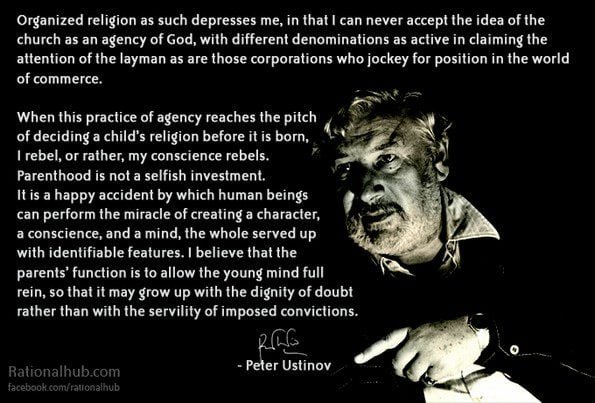
Here’s one of the dirty little secrets rarely spoken of by Evangelical pastors and leaders: most Evangelicals don’t choose to become Christians. Now, I’m not talking about the internecine war between Calvinists and Arminians over free-will. What I am talking about today is how people become members of Evangelical churches. Being a Christian, of course, is a requirement for membership, but most church members did not choose to become Christians — even if they think they did. Let me explain.
People come into the Evangelical church in one of three ways:
- They are born into and grow up in the church. They are what are called cradle Evangelicals.
- They have a crisis conversion — a born-again experience — and, after baptism, are admitted into membership.
- They are already Christians and are members of other churches. They leave these churches and join Evangelical congregations. This is commonly called transfer growth.
Let me deal with these in reverse order.
Transfer Growth
Despite all their talk about evangelizing the lost and reaching the world with the gospel, most Evangelical churches — particularly megachurches — “grow” through transfer growth — Methodists becoming Baptists, Baptists becoming Charismatics, Nazarene congregants becoming Reformed Baptists, etc. Far too many Evangelicals want to be entertained and “fed,” so they seek out churches that can meet their “felt needs.” Thinking that their present churches are “dead” or lacking in some way, disgruntled believers visit other churches, hoping to find one that clicks with them; one that offers the preaching, programs, music, and handsome preacher they are looking for.
The past forty years have been hard on small, often rural, churches. As megachurches pop up everywhere, they steal or entice away disaffected congregants from smaller churches. This is how a new church plant can skyrocket from a dozen people to hundreds in a matter of weeks or months. Megachurches — or mega-size aspiring church planters — deliberately target people who are looking for a church that is “relevant” or has the best damn band in the land. Music, in particular, has become a primary reason people leave their churches and join up with new churches. Oh, Evangelicals won’t say this out loud, choosing instead to give all sorts of “spiritual” reasons for desertion, but when pressed, they will admit that they sure do love the music at their new church. Like it or not, the quality of a church’s band is often the biggest factor in whether prospective members will join the club. Small churches, of course, can’t compete with congregations that have large budgets, paid music staff, and worship leaders who look like Ken or Barbie. Brother Bill leading congregants in the hymns of the faith can’t compete with coiffed worship bands who play and sing the latest praise and worship music with professionalism and skill.
Crisis Conversion
Regardless of the fact that most Evangelical church growth comes from transfers from other congregations, membership via crisis conversion is a fairly frequent occurrence. Evangelizers seek out people who are having troubles in their lives: marital problems, family issues, substance abuse, incarceration, criminal behavior, sexual perversion, to name a few, and share with them that the solution to their problems is Jesus Christ. How aggressive churches are in this regard varies from church to church. In the Independent Fundamentalist Baptist Church (IFB) movement, churches tend to emphasize evangelization. I heard countless evangelists say that churches should find the biggest, baddest, meanest man in town and win him to Jesus. Seeking out the dregs of society was common, as was targeting the poor and disadvantaged. Lured by promises that Jesus was the cure for what ailed them and the church was the family they never had, countless people accepted Jesus as their Lord and Savior, were baptized, and became members of Bible-believing churches.
As a youth growing up in the IFB church movement, I heard countless testimonies from people who were really bad people before Jesus saved them. I heard stories of changed lives from people who said they were a mob hit-man, Satanist, occultist, drug trafficker, prostitute, drug addict, alcoholic, porn star, bank robber, Black Panther, to name a few. The badder the person, the greater the conversion, or so the stories went, anyway. Many of these stories were later discredited or proved to be lies, but they sure made a mark on me. “Wow! Look at what Jesus did for these people! If Jesus can save them, he can save anyone!”
Cradle Evangelicals
Most Evangelical church members are born into and grow up in the church. As is common among all religions, their parents chose for them what their religion would be. My parents were saved, baptized, and became members of an IFB megachurch in the early 1960s. While I was baptized as an infant in the Episcopalian church, the church of my youth all the way up to age fifty was Evangelical Christianity. There was never a time I chose to be an Evangelical. My parents believed right-wing, racist, Fundamentalist Christianity was the one true faith, and following the words of the prophet Jeremiah, they determined “but as for me and my house, we will serve the Lord.” (Joshua 24:15) I suspect most of the ex-Evangelicals who read this blog can say the same; that their religion was chosen for them. Yes, I made a profession of faith as a young child and again as a fifteen-year-old teen, (Please see My Baptist Salvation Experience) but these “choices” were really expected rituals that all church children went through; little more than confirmation in Roman Catholicism or mainline churches.
Almost twenty years ago, a Barna Research study revealed (article no longer available):
For years, church leaders have heard the claim that nearly nine out of ten Christians accept Jesus as their savior before the age of 18. If that statistic was accurate in the past, it no longer depicts U.S. society. The current Barna study indicates that nearly half of all Americans who accept Jesus Christ as their savior do so before reaching the age of 13 (43%), and that two out of three born-again Christians (64%) made that commitment to Christ before their 18th birthday. One out of eight born-again people (13%) made their profession of faith while 18 to 21 years old. Less than one out of every four born-again Christians (23%) embraced Christ after their twenty-first birthday. Barna noted that these figures are consistent with similar studies it has conducted during the past twenty years.
The survey data show that Catholics who become born again are even more likely than Protestants to do so before reaching high school. Among those currently associated with a Catholic church and who are born again, two out of three (66%) accepted Christ before age 13; one-fifth (21%) did so from 13 to 21; and the remaining 13% made that decision as an adult. In contrast, born-again people aligned with a Protestant church make that choice at an older age: 40% did so as children, 35% during the 13-to-21-age span, and one-quarter (25%) as adults.
The precipitating event for someone to accept Christ as his or her savior varied by the age of the individual making that spiritual commitment.
For instance, among Christians who embraced Christ before their teen years, half were led to Christ by their parents, with another one in five led by some other friend or relative. Comparatively few accepted Jesus in response to a minister’s personal prompting (7%) and only one out of eight cited a special event as the turning point in their journey. Among those who mentioned events, about half identified a church service. Just 1% mentioned media evangelism or other special situations as being responsible for their conversion.
Among people who accepted Christ when they were age 13 through 21, the process was much more diverse. One out of five credited a friend with bringing them to Christ, and a similar proportion said their parents were responsible for their decision. One-fifth also recalled an event as the trigger for their commitment. One-sixth of the people saved as teens (16%) listed a relative other than their parent as the primary influencer. Ministers were cited by one out of every ten Christians who accepted Christ during the 13-to-21-age bracket, while media and special personal situations were listed by only 1%.
Dave Shibley, a writer for Child Evangelism Fellowship (CEF), states:
I believe in the validity of child evangelism.
For one thing, statistics are on its side. 19 out of 20 Christians receive Christ before the age of 25. After that, the odds against conversion become astronomical.
Early conversion saves not only a soul, but potentially points an entire life toward service to God and man. In 15 years of ministry I’ve met no one who is sorry he came to Christ early in life. I’ve encountered many who are sorry they didn’t.
….
Children are reached more easily than adults. Jay Kesler, president of Youth for Christ International, has well said, “Any evangelism after high school isn’t evangelism. It’s really salvage.”
Young children are notably tender. Their sincerity is never in doubt. Their heart attitudes contribute to genuine conversion. And Jesus told adults that they must become as children to experience the new birth (Matt. 18:3).
True, children who make an early profession of faith sometimes struggle with assurance and make a second public commitment later. They often say, “I didn’t know what I was doing the first time.” More likely, however, the personal worker attending the child didn’t know what he was doing.
We need not fully understand the Gospel to be saved; we need only believe and receive it. What adult fully comprehends the rationale or the magnitude of redemption?
Some argue that children are unable to stay true to their commitment. Yet the late English preacher Charles Spurgeon noted, “Out of a church of 2,700 members, I have never had to exclude a single one who was received while yet a child. Teachers and superintendents should not merely believe in the possibility of early conversion, but in the ferquency [sic] of it.”
Child evangelism assists in the formation of character. The Bible clearly teaches that man’s only capability for good lies in the imputed righteousness of Christ. We do not expect unconverted adults to act like Christians. The same should be true for children.
Christians seem to be the only ones who believe they should wait to influence children’s minds. Advertisers don’t wait. Child abusers don’t wait. Neither do humanist educators, false religions and cults, or Satan.
The church that reaches its children has a better chance of reaching its adults. Often newly-converted children win their parents and grandparents to the Lord. Those children grow up to be adults who can nurture their own families to faith in Jesus Christ.
Lest we forget, Christianity is always just one generation from extinction. We must reach the coming generation with the Gospel.
As you can see, Evangelical churches and parachurch groups know how important it is to evangelize children. That’s why they have junior church programs, youth programs, vacation Bible school (VBS), and countless other ministries/programs. These programs are used to indoctrinate and condition children before they can make rational, informed decisions about religion, God, and the Bible — sucking youngsters into the Evangelical ghetto before they have a chance to “think.” Evangelizers don’t want children and teenagers to use critical thinking skills to ponder whether the claims of Christianity are true. Instead, they are expected to believe and obey. Mom and Dad, Grandma and Grandpa, and their church knows what’s best for them, children are told, so there is no need to “think” about these things. Just follow the prescribed salvation rituals and all will be well. And for most of the people sitting in Evangelical churches, this is exactly how they became members in good standing.
Many former Evangelicals will tell you that studying the Bible and the claims of Christianity as teens or adults are what eventually led to their loss of faith. Their stories show that Evangelical indoctrination of children is no longer as effective as it was a generation ago. Thanks to the Internet, younger Evangelicals now have access to information about Christianity and the Bible that they have never heard from their parents, pastors, and Christian school teachers. Facts and evidence, along with skeptical, rational thinking are the best cure for those infected with Fundamentalist thinking as youths.
Churches can no longer rely on cradle Evangelicals to prop up ministries for another generation. Too many young congregants are exiting stage left, never to be seen again, save at weddings and funerals. So, Evangelical churches will focus on pilfering people from “dead” or “liberal” congregations or double-down on evangelizing the meanest, baddest people in town. Whether these approaches will pump enough new blood into the Evangelical churches remains to be seen.
Bruce Gerencser, 68, lives in rural Northwest Ohio with his wife of 47 years. He and his wife have six grown children and sixteen grandchildren. Bruce pastored Evangelical churches for twenty-five years in Ohio, Texas, and Michigan. Bruce left the ministry in 2005, and in 2008 he left Christianity. Bruce is now a humanist and an atheist.
Your comments are welcome and appreciated. All first-time comments are moderated. Please read the commenting rules before commenting.
You can email Bruce via the Contact Form.




